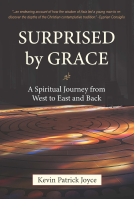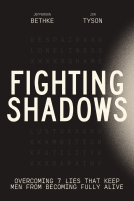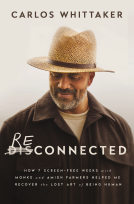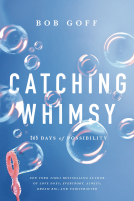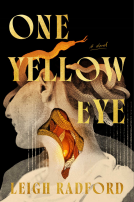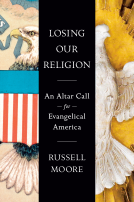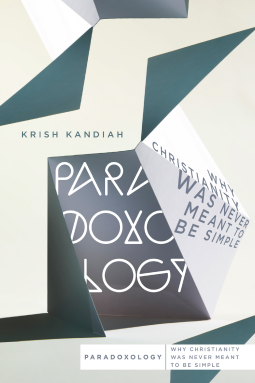
Paradoxology
Why Christianity Was Never Meant to Be Simple
by Krish Kandiah
This title was previously available on NetGalley and is now archived.
Send NetGalley books directly to your Kindle or Kindle app
1
To read on a Kindle or Kindle app, please add kindle@netgalley.com as an approved email address to receive files in your Amazon account. Click here for step-by-step instructions.
2
Also find your Kindle email address within your Amazon account, and enter it here.
Pub Date Feb 20 2017 | Archive Date Mar 21 2017
InterVarsity Press | IVP Books
Description
It seems that the God of the Christian faith is full of paradoxes: He's a compassionate God who sanctions genocide, an all-powerful God who allows horrific suffering, a God who owns everything yet demands so much from his followers, or a God who is distant and yet present at the same time.
Paradoxology makes a bold new claim: that the paradoxes that seem like they ought to undermine belief are actually the heart of our vibrant faith, and it is only by continually wrestling with them—rather than trying to pin them down or push them away—that we can really move forward, individually and together.
Many of us have big questions about God that the Christian faith seems to leave unanswered. Rather than shying away from the difficult questions, we need to face them head on.
Advance Praise
—Jo Saxton, chair of the board, 3D Movements
"Being able to live within the tensions created by paradox is one of the most essential capacities for true spiritual deepening and growth. So to have an entire book devoted to reflecting on the reality that the life of faith is full of paradox, to acknowledge some of the most confounding ones, and then learn how to be with God in the midst of them—wow! What a gift! I am most grateful for this offering that clearly emerges from Krish Kandiah's honest wrestling with the great paradoxes of life."
—Ruth Haley Barton, founder and CEO, Transforming Center, author of Strengthening the Soul of Your Leadership and Life Together in Christ
"Krish Kandiah explores here the genuine paradoxes of the Bible in an open and honest manner. Paradoxology will bless a new generation with a new kind of apologetics."
—Scot McKnight, Julius R. Mantey Professor of New Testament, Northern Seminary
Available Editions
| EDITION | Paperback |
| ISBN | 9780830845040 |
| PRICE | $17.00 (USD) |
| PAGES | 288 |
Featured Reviews
 Conrade Y, Reviewer
Conrade Y, Reviewer
Life is viewed like a paradox because of our limited perspectives. Every situation has multiple interpretations. Every interpretation is subject to changing contexts. When we view life as a paradox, it keeps us humble and open to different understanding. This is what author Krish Kandiah has done for us. By looking at key characters in the Bible, he helps us to learn the nuances of Christian teachings throughout the ages. Simply put, there are no simple answers to the difficult questions we encounter through time. Take suffering for example. Can we explain it or understand why it happens? For if we can understand all the things of God, surely, we will be God. The author begins with the following definition of a paradox: "A paradox, just to be clear, consists of true statements that lead to an apparent or real contradiction in logic or intuition." The key thesis in this book is this:
"Paradoxology makes a bold claim: that the paradoxes that seem to undermine belief are actually the heart of our vibrant faith, and that it is only by continually wrestling with them – rather than trying to pin them down or push them away – that we can really worship God, individually and together."
Continuing to wrestle means learning to appreciate both sides of the divide and the tensions that come with it. In the story of Abraham, we deal with the paradox of a God who needs nothing but still asks for everything from Abraham. It leads us through a range of back and forth propositions before the reader realizes that in demanding our all, God is actually bringing out the best of us for us. On Moses, we see how a God who seems so far away is brought near. Moses is one of those rare individuals privileged to get up close and personal with God. Knowing how to hold two truths, God being everywhere and yet at times so far away requires a healthy tension brought together in faith. On Joshua, we learn about the tensions of understanding how a compassionate God could ask for the destruction of the Canaanites. Often, the desire to want straight and rapid-fire answers will render us clueless as to what God is doing. If we are impatient with God, we have missed understanding that God has been most patient with us in the first place. The Job Paradox presents us a strange picture of God who seems to be distant and inactive. It is an opportunity to see how God does not answer human questions with answers, but how He reveals Himself through even more questions. Kandiah begins the Hosea Paradox by describing his faithfulness to Liverpool Football Club, to usher us into the truth of how despite man being unfaithful to God, God still remained faithful. The Habakkuk Paradox is about trying to understand an unpredictable God while the Jonah Paradox shows us how God is both selective and also non-discriminative. The Esther Paradox is how a God who was never mentioned in the Book of Esther seems to have His fingerprints everywhere. On the New Testament, Kandiah presents five paradoxes:
The Jesus Paradox: How God is both fully divine and fully human
The Judas Paradox: Tension of being truly free and yet that liberated.
The Cross Paradox: How God wins even as He seems to lose
The Roman Paradox: How God appears so ineffective, yet He is most effective.
The Corinthian Paradox: Encouragement amid Disappointment.
The power of paradox defies our pet ideologies and questions our old assumptions that have become fragile and archaic. While the truth is always truth, the way we see it can often change according to our contexts and circumstances. That's what life is about. From updating languages to changing tastes and lifestyles, we change because we are always growing. The Word of God is living and God reveals as much truth as we can possibly or willingly take. The key strength in this book is that the author dares to ask tough questions about some of our assumptions and still provides a way forward in learning. The subtitle of the book can be misunderstood. I know of people who often tend to say "Keep things simple" or "Life is not so complicated" kind of statements. As a result, they prefer not to dive deeper into the difficult parts of the Bible on the basis of this simplicity conviction. Kandiah takes the approach of a paradox lens to help us sift through the mass of multiple interpretations and questions. It is not the only way but is a highly effective and refreshing way to read Scripture. Not only that, once readers get the hang of plowing through the difficult passages, they might even be challenged to come up with different strategies which make for greater learning and appreciation. God's Word is living and we will continue to be nourished by the Word as long as we keep at it.
I suspect that one reason why people prefer to read and re-read choice passages in the Bible is because it is easier to understand without having to deal with the needed nuances they bring. For instance, take the eternal security debate about whether one could ever lose salvation. Those who believe so will stick to passages that support their view. Those who believe otherwise will do the same with their own passages. By failing to deal adequately will the whole story of Scripture, they lose out by self-congratulatory pats with having a partial picture. I have one main critique and that is the title itself. I feel that the "para" attached to "doxology" could render an alternative if not more negative understanding of worship. While the idea is about the -ology of a paradox, it could project erroneously a diminished view of "worship and praise." That is not the intent of the author but I suppose as a book about paradox, it could very well challenge us to think about worship as well, that even as I attempt to find out great things about God, it's a good reminder that knowledge cannot end in itself. The final goal of all knowledge and learning is worship: Doxology. Apart from this, I strongly recommend this book for reading, teaching, and learning.
Krish Kandiah is the Founding Director of Home for Good, a young charity seeking to make a real difference in the lives of vulnerable children. He is an author, an adjunct professor, as well as an activist on various charities.
Rating: 5 stars of 5.
conrade
This book has been provided courtesy of Inter-Varsity Press and NetGalley without requiring a positive review. All opinions offered above are mine unless otherwise stated or implied.
 Cat C, Reviewer
Cat C, Reviewer
This is a book for those asking questions about the Christian faith, whether you are someone just interested in what we believe or you are a believer yourself. We all have these questions at some point in our lives and this book opens up a way to explore, poke, examine and hold up those paradoxes that make our head ache while revealing to us the awe and wonder of the Christian faith. It is brilliant and certainly worth reading!
 Justin C, Media/Journalist
Justin C, Media/Journalist
Paradoxology is one of my favorite recent reads. The title sets the tone: Kandiah addresses difficult issues, but in a sometimes conversational tone. These are the troubling topics that we should be thinking through (rather than skipping over), and Kandiah does so without diving into overly academic work or becoming too breezy.
Not everything here's truly a paradox, but when there's something paradoxical, Kandiah works to show the value of faith in that tension, without skipping past the problems with, "Oh, that's just a mystery we can't understand." He works at the texts and the concepts. Other ideas he comes closer to resolving. His reading of Jonah is particularly engagin.
None of it's an intellectual exercise; Kandiah sees well that these questions play out in life, in how we treat our neighbors, build community, move through our grief, or seek jusice. It's a smart and readable book with much to say that's both useful and illuminating.
 R.J. A, Reviewer
R.J. A, Reviewer
I really enjoyed this book. It is hard topics, but dealt with in a very straight-froward, easy-to-digest manner. He doesn't attempt to solve any of these paradoxes, because, well, he can't... God is that mysterious. The author does, however, help one to work through and walk through many of these difficult things we see and know about God, and it helps us to grow our faith by putting words to many of our thoughts.
Readers who liked this book also liked:
Jefferson Bethke; Jon Tyson
Christian, Parenting & Families, Religion & Spirituality




